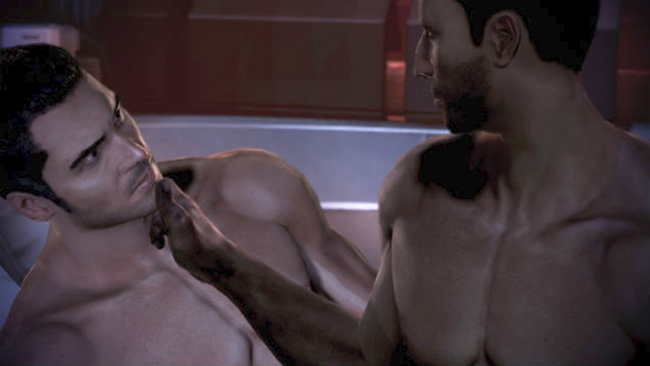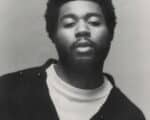>> Video Games Didn’t Make Me Gay, But They Did Make Me Proud
Les jeux vidéo peuvent-ils aider à accepter son homosexualité ?
Récemment, Bioware a annoncé un personnage jouable ouvertement gay pour le troisième opus de Dragon Age. Parallèlement, un rédacteur américain spécialisé dans les jeux vidéo a publié un long article sur Kotaku sur l’influence qu’ont eu certains jeux sur sa vision de l’homosexualité, notamment la sienne…
Yannick LeJacq explique dans son article qu’il n’est pas gay, enfin pas tout à fait. Cependant, il a quand même du affronter les mêmes angoisses que tout homosexuel, face à lui-même et à ses questions, mais également face aux autres, que ce soient des camarades de classes intolérants ou des premiers petits copains peu rassurants.
Dans son article « Les jeux vidéo ne m’ont pas rendu gay, mais ils m’ont rendu fier » publié sur Kotaku, le rédacteur explique comment certains jeux qui traitent de l’homosexualité ont pu influer sur sa vision de cette facette de sa personnalité et comment ils l’ont parfois soulagé dans un monde réel malheureusement moins ouvert et bienveillant.
 « J’aurais aimé que ma première fois avec un homme se soit passée dans un jeu vidéo. A la place, ça a été la deuxième. Et ce n’était pas du tout un homme, plutôt un amas de pixels et de sprites.
« J’aurais aimé que ma première fois avec un homme se soit passée dans un jeu vidéo. A la place, ça a été la deuxième. Et ce n’était pas du tout un homme, plutôt un amas de pixels et de sprites.
C’est pour ça que je souhaiterais avoir fait les choses différemment. Parce que le premier homme avec qui j’ai couché était très réel, tout comme l’étaient les risques et les conséquences. J’étais totalement en sécurité avec le deuxième, le virtuel. En jouant un personnage, en étant une autre personne, j’aurais pu très facilement me lever et laisser l’avatar à la table où il m’avait fait la proposition. Ou si j’avais vraiment paniqué, j’aurais pu enclencher l’ultime manœuvre de rejet et éteindre ma PlayStation.
J’étais libre de me lever et de quitter le bar dans la vraie vie aussi. Mais rencontrer le type était dangereux en premier lieu, dans un sens que je n’ai compris qu’en apprenant de lui et de ses amis ce que signifiait être gay pour eux. J’étudiais à l’étranger, en Jordanie, qui avait à cette époque une attitude relativement détendue à l’égard de l’homosexualité, comparé à ses proches voisins. Mais les hommes que j’ai rencontré là-bas parlaient encore sombrement d’être excommuniés ou maltraités par leurs familles. Le meurtre et l’emprisonnement étaient de tangibles, sinon immédiates, menaces. Et sans parler de retrouver la fac et ma copine quelques mois plus tard, en dissimulant ce qui semblait être un affreux secret. […]
J’étais terrifié par le mot “gay” bien longtemps avant d’arriver à la fac. Pendant mon année de seconde, un groupe de garçon m’a tellement tyrannisé que les directeurs ont rédigé la première règle de l’école contre le harcèlement virtuel. Ils continuaient de m’insulter mais je n’avais aucune idée de ce que “gay” pouvait vraiment signifier à ce moment. J’avais à peine connu mon premier baiser.
Finalement, j’ai commencé à sortir avec des filles. Mais ça n’a pas lavé la sensation de honte ni les résidus de peur. Il y avait quelque chose dans la manière dont un de ces garçons prononçait le mot “gay”, me montrant avec son crayon de l’autre bout de la table en cours d’SVT. Ça me mettait dans un état qui me faisait peur. Il le disait tellement souvent et avec tant de conviction que je commençais à me demander : et s’il avait raison ? Je n’étais déjà pas sûr d’avoir toutes les réponses et voilà qu’une personne m’en enfonçait une dans la gorge, encore et encore.
Ce que je ne savais pas comment dire à mon camarade de classe, et qui m’a demandé de nombreuses années et mauvaises décisions pour le réaliser, était ceci : Je ne suis pas gay.
J’ai été en dehors des sentiers battus assez longtemps pour ne pas être considéré comme hétéro non plus. Mais au moins je peux comprendre cette incertitude maintenant, et même l’apprécier.
Cependant, tout ce processus de découverte de soi aurait pu se passer autrement. C’aurait pu être le moment que je viens d’évoquer. Le jeu, c’était Mass Effect 3 et c’était le passionnant acte final d’un épique space opéra de l’ampleur de Star Wars. Avant que le troisième volet ne sorte, Bioware avait annoncé qu’il serait enfin possible pour les hommes de romancer d’autres hommes. Je ne savais pas trop ce que ça voulait dire quand j’ai choisi le jeu en 2012. Et puis un jour mon Commandant Shepard, viril et mal rasé, était assis à la terrasse d’un café quand il fut abordé par Kaidan Alenko, un vieux pote de l’armée. […]
Ces deux-là débordaient d’excitation. C’était adorable. Je ne pouvais pas m’empêcher de sourire largement avec eux.[…]
C’était ça ! Les deux tourtereaux ont continué de se bécoter un peu, mais la rencontre au café fut la seule fois où mon Shepard expérimenta une quelconque tension dans la découverte de sa toute nouvelle attirance pour les hommes. Et quand bien même, cétait une bonne forme de tension. Il n’y a eu aucune question agressive ni aucun jugement. Les anciennes conquêtes – conquêtes féminines- des deux premiers Mass Effect ne lui ont jamais manifesté aucune jalousie ni colère.
Les romances étaient présentées avec cette même élégance arbitraire dans Dragon Age, l’homologue Game of Thrones-esque de Mass Effect, également développé par Bioware, dans lequel le joueur est autorisé à papillonner entre différents genres (et espèce) avec une facilité surhumaine. […]
Les développeurs, les joueurs et les critiques ont tous fait référence à ces nouveaux ajouts comme des “relations gay”. Mais ce qui est fascinant c’est que les vrais habitants de ces mondes virtuels n’ont jamais eu l’air tellement déterminés à donner un nom à tout ce qu’ils faisaient. La sexualité dans les jeux vidéo n’était pas obligatoirement bonne ni mauvaise. Ce n’était pas être gay ou hétéro non plus. Ça existait juste. Personne n’a jamais arrêté Shepard dans le hall pour lui dire à quel point il était heureux de voir qu’il se sentait enfin mieux dans sa peau avec cette nouvelle tenue en cuir. […]
Mais quand même, le sexe dans Mass Effect avait l’air… bizarre, même pour un jeu vidéo dans lequel parler et même sortir avec des aliens qui ressemblent à des artichauts plein d’écailles était normal. C’était juste un fait auquel personne ne prêtait attention. Ce qui se tenait en quelque sorte, si on considère que chacun cherchait désespérément à survivre à l’assaut de gigantesque calamars mécaniques venus de l’espace à ce moment-là. C’était comme si un architecte de l’univers dans Mass Effect possédait un énorme interrupteur gay qu’il aurait allumé.
Je n’arrive pas à décider si c’était génial de la part des développeurs de chez Bioware ou s’ils ont fait une connerie monumentale. Une connerie parce que comme c’est le plus gros jeu auquel je puisse penser qui a réalisé ça de manière si hardie et abrupte, il possède une influence démesurée sur une certaine catégorie de joueurs. Ceux qui se sont sentis privés de leurs droits depuis si longtemps qui sont prêts à se raccrocher à n’importe quoi. Des gens comme… moi, par exemple.
Pour ces gens, l’interrupteur gay offre le fantasme d’une égalité quasi-parfaite. Tout est tellement normalisé que vous ne savez presque pas que c’est là. Malheureusement, ce n’est pas comme ça que ça marche dans le vrai monde pour plein de gens. En terme de scénario, je pense que la sexualité dans Mass Effect n’est pas particulièrement sophistiquée. Ça en dit moins sur les expériences des vrais gay que quelque chose comme le projet “It Gets better”. Et il s’agit d’une campagne de sensibilisation du public mis sur pied par un éminent militant des droits des homosexuels, pas quelque chose qu’on regarde durant nos loisirs.
Du coup, il est troublant de penser qu’un jeu comme Mass Effect ou Dragon Age donne aux jeunes joueurs l’impression que personne ne les traitera différemment quand ils auront compris qu’ils ne sont pas hétéros, plutôt que de leur donner les outils pour commencer à comprendre et accepter les discriminations auxquelles ils devront faire face dans leurs vies.
J’ai présenté mes inquiétudes il y a deux ans, à la Game Developers Conference, à David Gaider, le principal scénariste de Dragon Age, concernant l’amour et le sexe dans son nouveau projet. Sa réponse, à l’image de son travail, est allée droit au but.
“Bien sûr” dit-il. “C’est idéaliste, peut être même simpliste de créer un monde que chaque personnage gay peut parcourir librement. Mais est-ce vraiment un mauvais rêve ? Pour des joueurs qui cherchent une chance rare d’expérimenter ce rêve, le fantasme peut être aussi puissant que celui de tuer des dragons. Ou de coucher avec des artichauts en ce qui nous concerne.”
Je ne suis pas forcément d’accord. Mais j’aime aussi bien cet argument. Ça montre comment un gros studio influent a produit deux blockbusters qui, délibérément ou non, ont ressuscité l’idéal utopique des beaux jours de la libération gay – à peine soutenu en ce moment par le mouvement moderne des droits des homosexuels. […]
Un jeu comme Mass Effect 3 ne donne aucune solution concrète à une crise sanitaire publique. Il n’a pas à le faire, ce n’est pas le but. Les jeux ne peuvent pas être une panacée pour les maladies physiologiques et sociales. Mais ils peuvent être une échappatoire à ses mêmes traumatismes, un fantasme de quelque chose de mieux que les vies des gens qui y jouent.
C’est une mesure palliative, bien sûr. Mais c’est toujours un pas de fait vers quelque chose de bien plus grand.
“Depuis le jour de notre naissance, nous sommes entraînés en tant qu’homme à être en compétition avec les autres hommes” écrivent les deux [Michael Callen et Richard Berkowitz, deux militants pour les droits des homosexuels] dans leur texte fondateur du mouvement anti-SIDA. “Le défi pour les hommes homosexuels aujourd’hui aux Etats-Unis est de découvrir comment aimer quelqu’un que vous avez été formé à détruire.”
Il est difficile de lire ces mots dans le climat de sécurité actuel sans penser au temps où je rentrais de l’école pour me cacher. Le plus souvent, je me cachais derrière les jeux vidéo, comme ceux qu’a produit Bioware. Je me recroquevillais à l’abri de garçons qui semblaient extrêmement focalisés sur la destruction de chaque partie de moi qu’ils pouvaient atteindre, écrasant la moindre sexualité naissante que j’aurais pu avoir. »
Cet article est intéressant à de nombreux égards : il montre le cheminement de pensées d’une personne qui doit composer avec une sexualité qui n’est pas uniquement hétérosexuelle et se confronte donc avec le monde extérieur et son intolérance.
Il montre également que le jeu vidéo peut être une échappatoire, voire un havre de paix à pour certains joueurs, mais qu’il faut bien rester conscient de son caractère fictif. Néanmoins, il souligne le côté positif de cette démarche, en banalisant l’homosexualité et en la montrant comme ce qu’elle est, une orientation sexuelle aussi valable qu’une autre, on peut espérer voir les mentalités évoluer petit à petit.
Au moins, le fait qu’un aussi gros studio à succès comme BioWare (mais aussi Bethesda par exemple) se positionne dans cet optique est encourageant. On peut aussi se réjouir de voir le jeu vidéo, un média encore très jeune, renvoyer une image plus mature et ouverte et peur être espérer lui épargner un peu les clichés de violence et d’abrutissement qui lui sont encore trop souvent associés dans les médias.
Par Faye
madmoizelle.com
>> I wish that the first time I had sex with a man had been in a video game. Instead, it was the second. And he really wasn’t a man at all, so much as a bundle of pixels and sprites.
That’s why I wish I could’ve done things differently, though. Because the first man I had sex with was very real, and so were the risks and consequences. I was completely safe with the second one, the virtual one. Playing as a character, being another person, I could have very easily gotten up and left the avatar at the table where he propositioned me. Or if I’d really panicked, I could’ve pulled the ultimate eject maneuver and just turned my PlayStation off.
I was free to get up and walk out of the bar in real life, too. But just meeting the man in the first place was dangerous in a way I didn’t fully appreciate until I began to learn from him and his friends what gay life was for them. I was studying abroad in Jordan, which at the time had a relatively relaxed attitude toward homosexuality compared to some of its close neighbors. But the men I met there still spoke bleakly about being excommunicated or abused by their families. Murder and imprisonment were tangible, if not immediate, threats. And that’s saying nothing about returning to college and my girlfriend there a few months later, harboring what felt like a nasty secret.
What was I thinking? There was an allure in breaking the rules. But, really, I needed to find out what being gay might mean for me. Seeing what the word meant when I took it inside, feeling how it fit when finally laid on top of my body.
That could have meant my real body. But it didn’t have to, not at first. I didn’t need to jump straight into the deep end. I only did so, like I imagine many young men have, because I felt like I was being pushed.
« Gay » was a word I was terrified of, consumed by for a long time before I got to college. My Freshman year of high school, a group of boys picked on me so aggressively that our administrators coined the school’s first rules against cyberbullying. They kept calling me it, but I had no idea what gay really meant at that point. I’d barely had my first kiss.
There’s pride to be taken, even in insecurity.
Eventually, I started dating girls. But that didn’t wash away the shame and residual fear. There was something about the way one of the boys in that circle would say the word, « gay, » pointing at me with his pencil from across the table in science class. It shook me in some murky place I was scared of. He said it so often, and he sounded so sure every time, that I started to wonder: what if he’s right? I certainly didn’t feel like I had all the answers, and here was somebody forcing one down my throat over and over again.
What I didn’t know how to say to my classmate, what took me many more years and bad decisions to realize, is: I’m not gay. I’ve been bent out of shape enough times that I’m not sure I necessarily count as « straight » either. But at least I can understand that doubt now, even enjoy it.
And why shouldn’t I? These terms don’t really do much for me anyways. They’re the farthest thing from my mind whenever I’m actually doing most of the things that supposedly warrant such incessant classification. There’s pride to be taken, even in insecurity.
This whole process of self-discovery could have happened another way, however. It could have been like the moment I just alluded to. The game was Mass Effect 3, and it was the thrilling final act of an epic space opera on the scale of Star Wars. Before the third game came out, developer BioWare said that men would finally be able to romance other men. I didn’t know what exactly that meant when I picked the game up in 2012. Then, one day, my stubbly and masculine protagonist Commander Shepard was sitting down at an outdoor cafe when he was approached by Kaidan Alenko, an old military buddy.
« We’ve been friends a long time, Shepard, » Kaidan said, sounding more nervous than usual. « Ever known me to be with anyone? Guess I’m choosy or patient or … I don’t know. Maybe what I’ve never found—what I want—is something deeper with someone I already … care about. That’s what I want. What do you want? »
I could already tell what was coming, but I had fun wondering if my Shepard did.
« You and me? » I prompted Shepard to say after a beat. « Is that what you’re saying, Kaidan? »
It was his turn again.
« It feels right, doesn’t it? »
Shepard smiled. The two of them were brimming with excitement. It was adorable. I couldn’t help but grin along with them.
« Be nice to have someone to turn to when things get grim, » Shepard said. « Someone to live for. Maybe love. » He paused again. It felt like he was turning the idea over in his head, imagining it as a new outfit and trying to decide how well it fit.
« You, Kaidan. Huh. It does. It does feel right. After all this time. You and me. I like that. A lot. »
Aaaaaaaaaaaaaaand… scene.
That was that! The two lovebirds cavorted a bit more, but the encounter at the coffee shop was the only time my Shepard experienced any tension for embracing his newfound love of men. And even then, it was only a good kind of tension. There were no aggressive or judgmental questions. Former flames—female flames—from the last two Mass Effect games never confronted him in jealousy or anger.
Past and present romances played out with a similar arbitrary grace in Dragon Age, BioWare’s Game of Thrones-esque counterpart to Mass Effect, which allowed the player to flit between different genders (and species) with superhuman ease. The jilted lovers you left behind weren’t always happy to see you romping around with someone new. But you had to do a lot more than break someone’s heart for them to get so fed up that they’d actually pack up their things and leave you to slay dragons with your new beau.
Developers, gamers, and critics all referred to these new additions as gay relationships. But what’s fascinating is that the actual denizens of these virtual universes never seemed as determined to give a name to whatever it is they were doing. Sexuality in the games wasn’t good or bad, necessarily. It wasn’t gay or straight either. It just was. Nobody even stopped Shepard in the hall to say how glad they were that he was finally more comfortable with himself in that new leather getup.
Ok, sorry: there was no leather getup. My imagination was just getting away from me again. But still, the gay sex in Mass Effect seemed…odd, even for a video game in which talking to and, yes, even dating aliens who looked like scaly artichokes was normal. This was just another fact of life that nobody paid much attention to. Which sort of makes sense, considering how everyone was scrambling to survive an onslaught of giant mechanical squid monsters from outer space at that point. It was like some architect of the universe in Mass Effect had a massive gay light switch he turned « on. »
I still can’t decide if this was brilliant on developer BioWare’s part or complete and utter bullshit. The bullshit part is that, since it’s the biggest game I can think of that’s made this turn quite so boldly and abruptly, it has an outsized voice for a certain class of gamers. Ones who’ve been feeling disenfranchised for so long that they’re willing to latch onto anything. People like…me, for one.
For those people, the gay switch delivers a fantasy of near-perfect equality. Everything is so normalized you almost don’t even know it’s there. Unfortunately, that’s not how things work out in real life for many people. In terms of its storytelling, then, I think the sexuality in Mass Effect isn’t particularly sophisticated. It says less about the experiences of real gay people than something like the It Gets Better project. And that’s a public outreach campaign put on by a prominent gay rights activist, not something to be viewed at our leisure.
So it’s troubling to think that a game like Mass Effect or Dragon Age gives young players the idea that nobody will ever treat them differently once they find out they’re anything other than straight, rather than give them the tools with which they can start to understand and accept the discrimination they may end up facing in their lives.
I raised this concern two years ago at the Game Developers Conference when I was speaking with David Gaider, the lead writer on Dragon Age, about love and sex in his next project. His response, like his work, was refreshingly succinct on the matter.
Sure, he said. It is idealistic, maybe even simplistic, to make a world in which gay characters roam free. But is that really such a bad dream to have? For players looking for a rare chance to experience this dream, the fantasy can be just as powerful as one about slaying dragons. Or sleeping with artichokes, for that matter.
I don’t necessarily agree. But I love his argument all the same. It shows how a large and influential studio made two blockbuster video games that, intentionally or not, have resuscitated a utopian ideal from the heady days of gay liberation—one that’s barely supported by the modern gay rights movement at this point.
It’s hard to remember in light of the present furor over things like marriage equality, but for a long time prior to the AIDS crisis many vocal gay men didn’t care about getting married. Once the sexual revolution got underway, they were far more interested in lionizing promiscuity as a revolutionary kind of sexual ethic. The novelty of this idea, its profound difference from the norms and expectations of the nuclear family, was its entire appeal. As the artist David Wojnarowicz wrote in his memoir Close To The Knives: « The world we created in a day’s adventure exists outside the rest of the world. »
He was talking about the dalliances and indulgences into the underground of American life that he made as a gay man coming of age in the sixties and seventies. The sad irony of reading those words is that his flights of fantasy, like those of so many gay men who were fighting and fucking their way towards gay liberation at that time, is that they didn’t really exist « outside the rest of the world. » They couldn’t, because the real world always has a way of creeping back in. Wojnarowicz died from complications caused by AIDS in 1992. He was 37 years old.
A game like Mass Effect 3 doesn’t proffer any meaningful solutions to a public health crisis. It doesn’t have to; that’s not the point. Games can’t be a cure-all for physiological and social ills. But they can be an escape from those same traumas, a fantasy of something better than the real lives of the people who are playing them.
That’s a palliative measure, sure. But it’s still a step towards something far more grand.
« The world we created in a day’s adventure exists outside the rest of the world. »
Hidden as it may be behind all the pomp and circumstance and hairless buff dudes, I think there’s a similar fantasy on display at all the gay pride parades that have been unfolding across the country as of late. It’s less about a gay or LGBTQ community, but more about a community in which « love becomes possible, » as the activists Michael Callen and Richard Berkowitz put it in How To Have Sex In An Epidemic (One Approach), one of the first modern safe-sex manuals.
« From the day we are born we trained as men to compete with other men, » the two wrote in their seminal piece of early AIDS activism. « The challenge facing gay men today in America is to figure out how to love someone you’ve been trained to ‘destroy.' »
It’s hard to read these words from the safety of the present and not think about the times I went home from school as a teenager to hide. Most often, I hid behind video games like the ones BioWare made. I was cowering from boys who seemed intently focused on destroying the parts of me they could, quashing any nascent sexuality I might have had.
« The goal of gay male liberation must be to find ways in which love becomes possible despite continuing and often overwhelming pressure to compete and adopt adversary relationships with other men, » Callen and Berkowitz continued in their manifesto.
« Maybe affection is our best protection, » they ended hopefully. « Hard questions for hard times, but whatever happened to our great gay imaginations? »
« Love becomes possible. » That phrase has always stood out to me. It’s like they were trying to flip a switch.
Top image by Sam Woolley.
To contact the author of this post, write to yannick.lejacq@kotaku.com


















